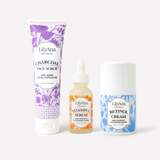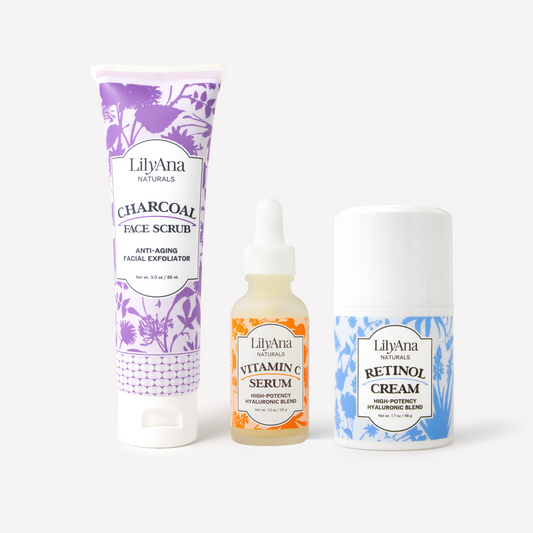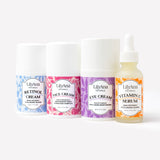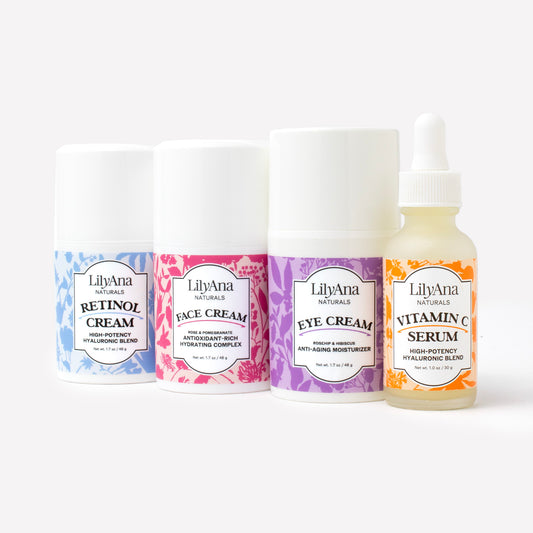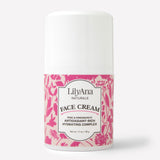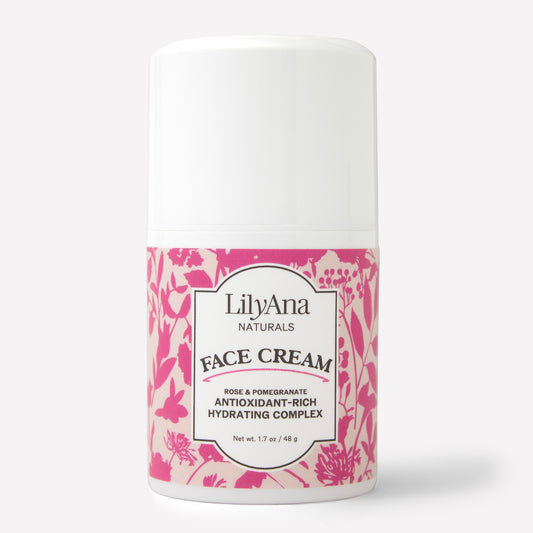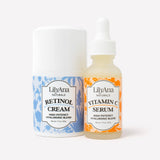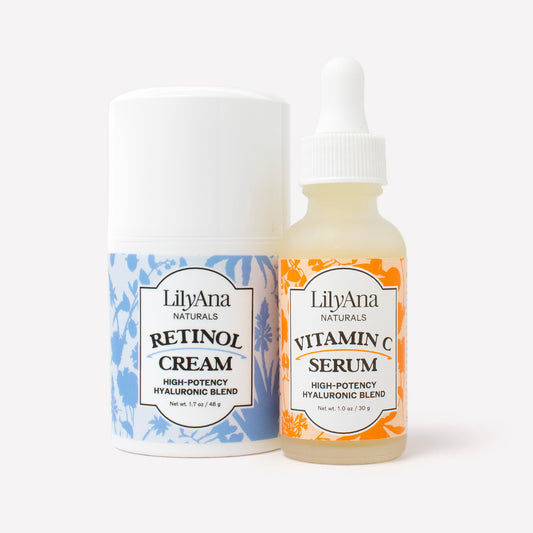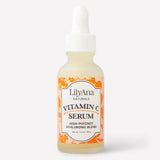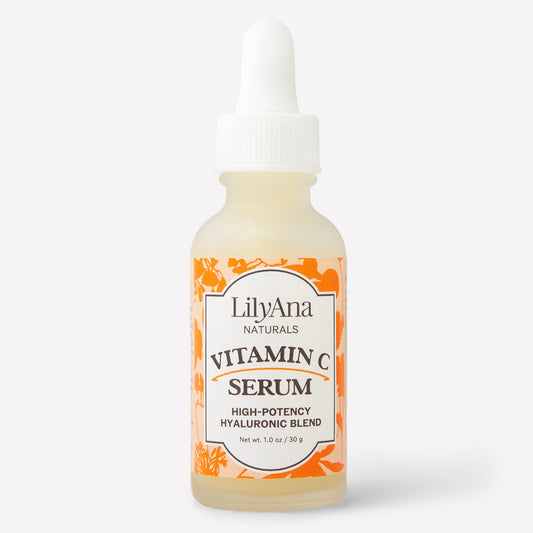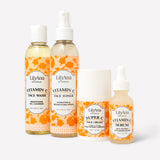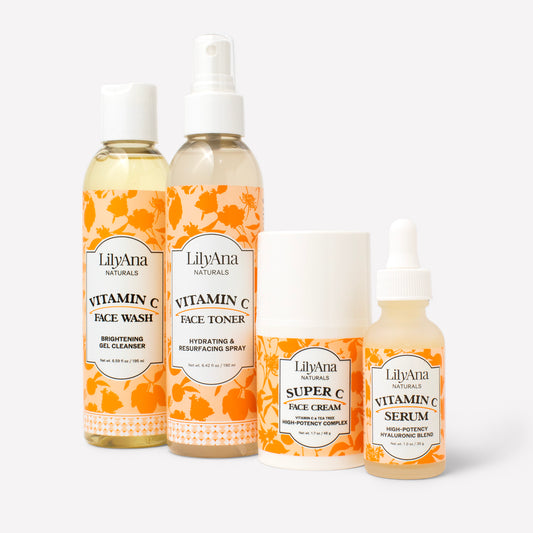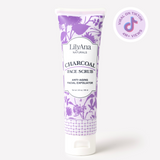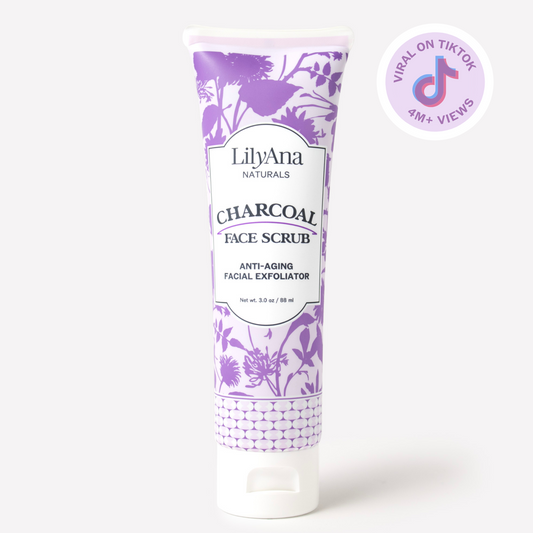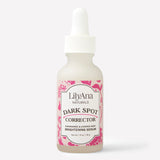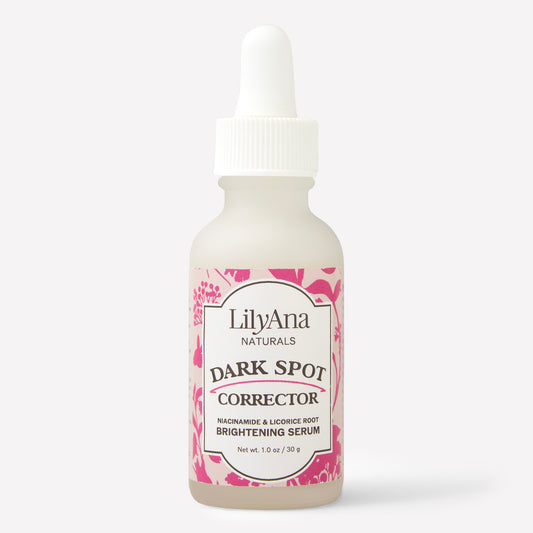The Rise of Natural Sunscreens
In today's quest for healthier, more radiant skin, the spotlight has turned to a natural alternative for sun protection. With growing concerns about the potential risks of chemical sunscreens, the allure of natural sunscreens has intensified. Harnessing the power of botanical ingredients, these sunscreens not only shield the skin from harmful UV rays but also nourish it. This shift reflects a collective desire for skincare products that are effective, gentle, and eco-friendly. As we delve into the world of natural sunscreens, we will explore their benefits, debunk common myths, and uncover the best practices for incorporating them into our daily skincare routines. Join us on this journey to discover the transformative power of natural sunscreens for healthy, radiant skin.
Understanding Natural Sunscreens and Their Benefits
Definition and Explanation of Natural Sunscreens
Natural sunscreens, such as those featured on LilyAna Naturals' website, utilize mineral-based ingredients like zinc oxide and titanium dioxide to create a physical barrier against the sun's harmful UV rays. These ingredients work by sitting on top of the skin and reflecting or scattering the UV radiation away from the body. This makes them an ideal choice for individuals seeking natural skincare solutions that promote skin health and well-being.
Differentiating Natural Sunscreens from Chemical Sunscreens
The distinction between natural and chemical sunscreens lies in their active ingredients. Chemical sunscreens contain compounds like oxybenzone and avobenzone, which are absorbed into the skin and then absorb and dissipate UV rays. In contrast, natural sunscreens rely on minerals like zinc oxide and titanium dioxide to physically block and scatter UV radiation. This fundamental difference in functionality has led to a growing preference for natural sunscreens among consumers seeking safer and more environmentally friendly options.
Importance of Sun Protection for Skin Health
Regardless of the type of sunscreen used, protecting the skin from the sun's harmful rays is crucial for maintaining skin health. Prolonged exposure to UV radiation can lead to sunburn, premature aging, and an increased risk of skin cancer. Natural sunscreens, like those offered by LilyAna Naturals, provide a reliable means of shielding the skin from these adverse effects without the potential risks associated with certain chemical ingredients.
Environmental Impact of Chemical Sunscreens
Chemical sunscreens can pose environmental risks, especially when individuals swim in oceans or lakes while wearing them. The compounds can leach into the water, potentially harming marine life and coral reefs. This has prompted concerns about the ecological consequences of widespread sunscreen use and has fueled interest in natural alternatives. By choosing natural sunscreens, consumers can reduce their contribution to environmental damage while still effectively protecting their skin from the sun's rays.
Benefits of Natural Sunscreens
Protection against harmful UV rays
Natural sunscreens offer effective protection against harmful UV rays, including both UVA and UVB rays. They contain mineral-based ingredients such as zinc oxide and titanium dioxide, which act as physical barriers to reflect and scatter the sun's rays away from the skin. This provides broad-spectrum protection without the use of potentially harmful chemicals found in conventional sunscreens.
Prevention of skin cancer and signs of aging
One of the key benefits of natural sunscreens is their ability to help prevent skin cancer and signs of aging. By providing protection against UV radiation, natural sunscreens reduce the risk of developing skin cancer, including melanoma, squamous cell carcinoma, and basal cell carcinoma. Additionally, they aid in preventing premature aging signs such as wrinkles, fine lines, and age spots, which are often caused by sun damage.
Suitable for sensitive skin and allergies
Natural sunscreens are gentle on the skin, making them suitable for individuals with sensitive skin and allergies. Unlike chemical sunscreens that may cause irritation or allergic reactions, natural sunscreens are less likely to trigger such responses due to their mineral-based formulations. This makes them an ideal choice for those with skin conditions such as eczema or rosacea, as well as individuals prone to allergic reactions.
Reef-safe formulations
Another significant benefit of natural sunscreens is their reef-safe formulations. Conventional sunscreens often contain oxybenzone and octinoxate, chemicals known to harm coral reefs and marine life. In contrast, natural sunscreens use ingredients that are biodegradable and do not contribute to coral bleaching or other harmful effects on marine ecosystems. By choosing natural sunscreens, consumers can help protect the delicate balance of marine environments while safeguarding their skin.
The webpage of LilyAna Naturals promotes a range of retinol skincare products designed to address signs of aging, improve skin texture, and achieve a youthful appearance. These products are formulated to boost natural cell promotion and collagen production, erase signs of aging and skin damage, fade lines and blemishes, clear away dead skin buildup, and unclog and tighten pores for a smoother, clearer complexion. The unique selling points of LilyAna Naturals' retinol products include their use of natural ingredients, lightweight and nourishing formulas, and the combination of retinol with other beneficial ingredients like vitamin C. The webpage also provides options for purchasing the products, including subscription and one-time purchase options.
The benefits of natural sunscreens are well-documented, offering protection against harmful UV rays, prevention of skin cancer and signs of aging, suitability for sensitive skin, and reef-safe formulations. In contrast, LilyAna Naturals' retinol skincare products cater to individuals seeking to address signs of aging, improve skin texture, and achieve a youthful appearance through the use of natural and nourishing ingredients.
Choosing the Right Natural Sunscreen
Understanding key ingredients on sunscreen labels
When selecting a natural sunscreen, it's essential to understand the key ingredients on sunscreen labels. Look for mineral-based active ingredients such as zinc oxide and titanium dioxide, which provide broad-spectrum protection against both UVA and UVB rays. These ingredients are effective and less likely to cause skin irritation compared to chemical sunscreens. Additionally, opt for sunscreens labeled "broad-spectrum," indicating that they protect against both types of harmful rays.
Considering SPF levels and broad-spectrum protection
Another factor to consider when choosing a natural sunscreen is the SPF level and broad-spectrum protection. SPF, or Sun Protection Factor, measures a sunscreen's ability to protect against UVB rays, which are primarily responsible for sunburns. For adequate protection, choose a sunscreen with an SPF of at least 30. Additionally, ensure that the sunscreen provides broad-spectrum protection, which shields the skin from both UVA and UVB rays.
Opting for water-resistant formulations
For extended outdoor activities or swimming, opt for water-resistant natural sunscreens. These formulations are designed to maintain their effectiveness for a specified amount of time while exposed to water or sweating. Look for sunscreens labeled "water-resistant," and follow the manufacturer's instructions for reapplication to ensure continuous protection.
Checking for additional skin-nourishing ingredients
Some natural sunscreens contain additional skin-nourishing ingredients, such as antioxidants or moisturizers, which can benefit the skin. Antioxidants like vitamin E help protect the skin from free radical damage caused by UV exposure, while moisturizers like aloe vera soothe and hydrate the skin. Consider choosing a sunscreen that offers these additional benefits for healthier, more radiant skin.
Ensuring compatibility with your skin type
Lastly, consider your skin type and any specific concerns you may have when selecting a natural sunscreen. If you have oily or acne-prone skin, look for lightweight, non-comedogenic formulations that won't clog pores. For sensitive skin, choose sunscreens labeled "sensitive skin" or "hypoallergenic" to minimize the risk of irritation or allergic reactions. By choosing a sunscreen that is compatible with your skin type, you can ensure a comfortable and effective sun protection experience.
Incorporating Natural Sunscreens into Your Skincare Routine
Daily use and reapplication
To maximize the benefits of natural sunscreens, incorporate them into your daily skincare routine. Apply sunscreen generously to all exposed skin areas, including the face, neck, and hands, before sun exposure. Reapply sunscreen every two hours or immediately after swimming, sweating, or towel drying to maintain adequate protection.
Layering with other skincare products
When using natural sunscreens, consider layering them with other skincare products for added benefits. For example, apply a moisturizer with SPF in the morning before applying makeup for added sun protection. Additionally, consider using a separate sunscreen specifically formulated for the delicate skin around the eyes to prevent sun damage and signs of aging in this area.
Choosing complementary skincare products
Pairing natural sunscreens with complementary skincare products can enhance their effectiveness and provide additional benefits. For example, use an antioxidant-rich serum or moisturizer to boost the skin's defense against free radical damage caused by UV exposure. Incorporating products with ingredients like vitamin C, niacinamide, or hyaluronic acid can further support skin health and hydration, complementing the protective effects of natural sunscreens.
Regular skin checks and professional consultations
Lastly, incorporate regular skin checks and professional consultations into your skincare routine to monitor your skin's health and address any concerns. Consult with a dermatologist if you notice any changes in your skin, such as new or changing moles, to ensure early detection and treatment of skin cancer. By staying proactive about your skin health, you can maintain a healthy and radiant complexion for years to come.
